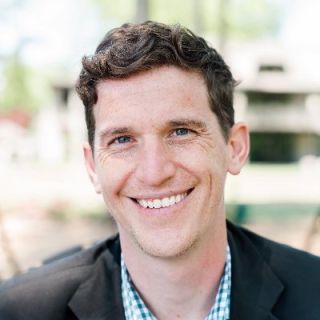Career
The Many Reasons for Hope in Long Covid
A CNN reporter's new book tells how Long Covid patients make democracy work.
Updated April 13, 2024 Reviewed by Gary Drevitch
Key points
- Long Covid patient-led innovations are changing the way healthcare is delivered.
- Patient advocacy has led to political support for Long Covid research.
- The new book "The Long Haul" is about the little guy finding a way to make democracy work to solve a problem.

To the millions of patients with Long Covid, who have lived with up to four years of debilitating or disabling symptoms, the disease is a disaster. Yet, in the midst of all the suffering, CNN Reporter Ryan Prior sees a story of community, advocacy, and democracy at its best. This week alone, U.S. Sen. Bernie Sanders has responded to the cries of Long Covid patients by announcing a legislative proposal for $10 billion in research funding for Long Covid over the next 10 years.
I talked with Prior, a fellow writer for Psychology Today, about his book, The Long Haul: How Long Covid Survivors Are Revolutionizing Health Care. In the book, Prior weaves his own life, the stories of activist patients, and the latest science into a captivating tale of regular people crying out for care that actually works. Scientists and public officials, who expected Covid-19 to be an infection that cleared up in a matter of weeks, were caught off guard by the tens of millions around the world who got sick and stayed sick. These Long Covid patients often found solace only with one another, organizing support groups across oceans and continents while ill in bed.
The Long Haul is now out in paperback from MIT Press.
Alison Escalante: Your own story was part of the inspiration for the book. What happened?
Ryan Prior: I got sick in 2006 on the weekend of my 17th birthday. I was a cross-country runner and a soccer player and taking AP classes. And then within two weeks, I had to drop out of school for about seven months. And I went to 16 different doctors who ultimately gave me the diagnosis of chronic fatigue syndrome. I attribute it to a tick-borne illness, likely Lyme disease due to a tick bite I had at a Boy Scout camp. I took 15 pills a day and got an IV infusion every month for about 12 years. But at this point I am entirely recovered, barring a relapse.
AE: What is the focus of your book and how has your view changed since it was published?
RP: I wanted to build the story around regular people who were able to stand up for a specific problem that they were having, and then to alert the powers that be to that problem: The story of regular citizens in a democracy to guide the process for how we solve problems. But when I finished this book in February 2022 I was dismayed, because I felt the story was half finished, and I really wanted to have a triumphal ending.
Even in the last few days, my feeling toward the book has changed because Senator Bernie Sanders, the Chair of the Senate Health, Education, Labor, and Pensions (HELP) Committee, has proposed a bill calling for the Long COVID moonshot and $10 billion over 10 years for research.
In 2021, I contacted Lisa McCorkell, and Hannah Davis from the Patient Led Research Collaborative to make them a part of this book showing how small groups of people can make a huge difference. Lisa wrote a piece in Nature, and then Sen. Sanders proposed the bill for the Long Covid Moonshot. It all proves my book’s underlying hypothesis: that when this huge number of people suffers, the powers that be can and do respond. And that makes me feel more optimistic; this is what we learned in ninth-grade civics about how democracy is supposed to work.
AE: Is there bipartisan support for Long Covid research funding?
RP: Yes. There are two important Republicans on the HELP committee who are doctors. One of them is Kansas Senator Roger Marshall, who has a close loved one with Long COVID who has been to dozens of doctors, and been mostly bed-bound for a couple of years. Similarly, Louisiana Senator Bill Cassidy sees Long Covid as a very real problem and has called for research into solutions. The greatest amount of hope I have yet felt about Long COVID has happened in the last couple months.
AE: What have you seen in the last couple months that can give hope to patients?
RP: First, there’s a lot of phenomenal work being done in the startup world. For example, RTHM is a medical group designed to treat patients with Long Covid. I'm on the advisory board for a startup called COVID Blue Health, developing an AI-empowered virtual patient-centered care platform for patients with infection-associated chronic illness.
In the philanthropic sector, Vitalik Buterin, the co-founder the cryptocurrency Ethereum, is funding the Patient Led Research Collaborative. He’s also funding the Polybio Research Foundation, which is doing some incredible work on looking into the long-term effects of pathogens.
AE: How else are patients innovating ways to help themselves?
RP: With Long Covid comes despair and anguish. The severity of the symptoms and of the disability is exactly as bad as we [the pre-existing community with post-viral illnesses] had feared, especially for a specific subset of patients who are more moderate-to-severe and can't work anymore.
And there is also an exciting part: that so many people who have Long Covid are creatively building on the knowledge that that's largely been curated by patients with post-infectious Myalgic encephalomyelitis/chronic fatigue syndrome (ME/CFS). There is the generosity and willingness of patients to share their experience in online forums, which could be Slack, Facebook, Twitter, Reddit, etc. So many Long Covid patients know exactly what to expect, not because they've learned that from their doctors, but because they learned it from fellow patients. So there's a really important story here about peer-to-peer health.
When somebody gets a new diagnosis, they should be prescribed not just a treatment plan, but also be prescribed a peer support group who can walk them through it. This is how new Long Covid patients learn which supplement to put into your water for electrolytes, or what kind of compression stockings to wear and which brands are better or worse for dealing with postural orthostatic tachycardia syndrome (POTS). And those really specific aspects of patient wisdom are very important.
AE: What else are Long Covid patients doing to change health care?
RP: It’s been incredibly exciting to see patients creating startups, several of which involve using wearables to track and manage symptoms. Chicago-based Pathize is one of those groups. And Visible is a group that's run out of the UK, which has a lot of users on their platform. A community has evolved around these platforms, where patients can share data and compare what works for them. They are taking technology, and they're building new ways of doing research.
AE: What would you say to the naysayers who claim that Long Covid is psychosomatic? For example, some naysayers insist that support groups make things worse by “reinforcing an identity." Others claim that the very act of measuring heart rate with a wearable causes anxiety and thus elevated heart rate.
RP: People who are well don't join support groups because they don't need them. Obviously, correlation doesn't guarantee causation. You could easily make a different inference based on that same data.
But for doctors struggling to separate these symptoms from anxiety or depression, there are numerous studies showing all kinds of different detectable objective data [that Long Covid is a biological disease]; for example, studies showing off-the-charts amounts of inflammation.
I think that some of the most important inferences come from the HIV doctors who come into Long Covid and see it under the exactly the same framework. You've got researchers who are veterans of looking at HIV, who are moving into the Long Covid world and translating all of their knowledge and finding similarities.
AE: What are your thoughts on Long Covid patient complaints about medical gaslighting?
RP: Many health-care providers are under extreme pressure from the system that they are in to label something quickly, even if it's not correct, because of the lack of time that they have and the lack of tools that they have. And they have to figure out some other specialists to shuffle that patient onto. The number of options that the primary-care doctor has are severely limited and so patients get put into psychiatric areas due to the overall lack of knowledge.
Many patients rightly accused their doctors of gaslighting them. The other side of it is that many physicians are experiencing moral injury: When you see somebody suffering and you cannot do anything about it, that's traumatizing for doctors. As the actual possibilities for treating these patients increase, I hope to see better performance among health providers.
It takes 90 minutes to do a medical visit with a Long Covid patient, because of all the body systems involved. But if you could design a clinic where you've got the five or six relevant specialists, you can get it done in three hours.
AE: Is there a takeaway you'd like to leave with us?
RP: So many parts of these new ways of doing healthcare can be patient-centered and patient-led. There's an entirely new entrepreneurial ecosystem being built up, in addition to new ways of doing science. There really is hope for Long Covid patients and those with other post-infectious illnesses.




